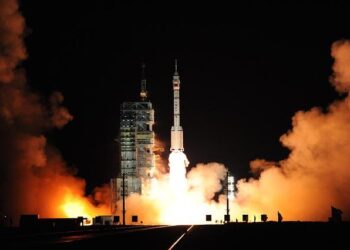France’s recent decision to recognize Palestine has sparked widespread discussion and varying interpretations across the international community. Contrary to claims that this move serves as a “gift” to the militant group Hamas, officials and analysts emphasize that France’s recognition is a strategic political stance aimed at advancing peace and stability in the Israeli-Palestinian conflict. This article delves into the nuances of France’s position, the reactions from key stakeholders, and what the recognition means for the broader Middle East diplomatic landscape.
France’s Recognition of Palestine Underscores Diplomatic Nuance Amidst Middle East Conflict
France’s recent move to formally recognize Palestine has stirred significant debate across international diplomatic circles. However, this is far from a straightforward endorsement of any faction within the Palestinian territories, notably Hamas. Instead, it reflects a nuanced diplomatic stance aimed at fostering constructive dialogue and paving the way for a sustainable peace process. French officials emphasize that recognition is a reflection of long-standing support for Palestinian statehood aspirations, rather than an unreserved alignment with the political or militant strategies of groups involved in the ongoing conflict.
The decision comes amid heightened tensions in the Middle East, where every international gesture is carefully weighted for its potential consequences. Paris aims to balance its commitments to Israel’s security with its support for Palestinian self-determination, highlighting a complex diplomatic tightrope. Key elements of this approach include:
- Support for a two-state solution: Reinforcing dialogue platforms that promote negotiation over conflict.
- Distancing from militant factions: Clarifying that recognition does not equate to support for Hamas’s actions.
- Encouraging international cooperation: Urging other nations to engage in balanced diplomacy toward conflict resolution.
| Aspect | France’s Position | Impact on Middle East Dynamics |
|---|---|---|
| Recognition | Symbolic support for Palestinian statehood | Promotes diplomatic engagement over isolation |
| Security | Maintains backing for Israel’s right to defend itself | Prevents alienation of Western allies |
| Dialogue | Encourages peace talks and conflict resolution | Fosters regional stability efforts |
Analyzing the Political Implications Beyond Support for Hamas
France’s recent move to recognize Palestine diplomatically extends far beyond mere expressions of solidarity with Hamas or any militant faction. The decision reflects a broader strategic calculation aimed at reshaping regional dynamics and asserting Europe’s role in Middle Eastern peace processes. By engaging directly with Palestinian authorities, France signals a desire to promote diplomatic dialogue, stability, and a two-state solution, rather than empowering any single group. This subtle yet deliberate stance challenges reductive narratives that equate Palestine’s recognition with endorsing violence.
Moreover, the recognition has sparked varied political reactions within France and across Europe, revealing deep-seated tensions about foreign policy priorities and national interests. Key implications include:
- Recalibration of alliances: France aims to balance its commitment to Israel’s security concerns with its support for Palestinian self-determination.
- Influence on EU policy: This move could catalyze a more unified European approach toward Israel-Palestine engagement, pressuring Brussels to revisit existing frameworks.
- Domestic political discourse: The issue illustrates growing debates among French political parties about immigration, national identity, and international responsibility.
| Aspect | Political Impact | ||||||||||||
|---|---|---|---|---|---|---|---|---|---|---|---|---|---|
| Diplomatic Relations | Enhanced engagement with Palestinian leadership | ||||||||||||
| EU Strategy | Potential shift towards greater EU cohesion on Middle East policies | ||||||||||||
| Domestic Politics | Recommendations for International Engagement and Conflict Resolution Strategies Addressing the complexities of Middle Eastern conflicts requires nuanced diplomatic efforts that prioritize equitable representation and mutual recognition. It’s crucial for international actors to engage in dialogue that acknowledges the legitimate aspirations of all parties involved rather than framing recognition as a favor or political maneuver. Constructive engagement should focus on fostering trust through transparent negotiation channels and facilitating grassroots peacebuilding initiatives alongside official diplomatic talks. Key recommendations include:
Final ThoughtsFrance’s recognition of Palestine marks a significant diplomatic stance that reflects evolving international perspectives on the Israeli-Palestinian conflict. As this development unfolds, it is essential to understand that such recognition is a political decision rooted in the pursuit of peace and legitimacy, rather than an endorsement of any militant organization. The distinction underscores the complexity of Middle Eastern diplomacy and highlights France’s attempt to navigate a path toward renewed dialogue and resolution. Moving forward, the international community will be closely watching how this recognition influences regional dynamics and the broader quest for lasting peace. ADVERTISEMENT |
















